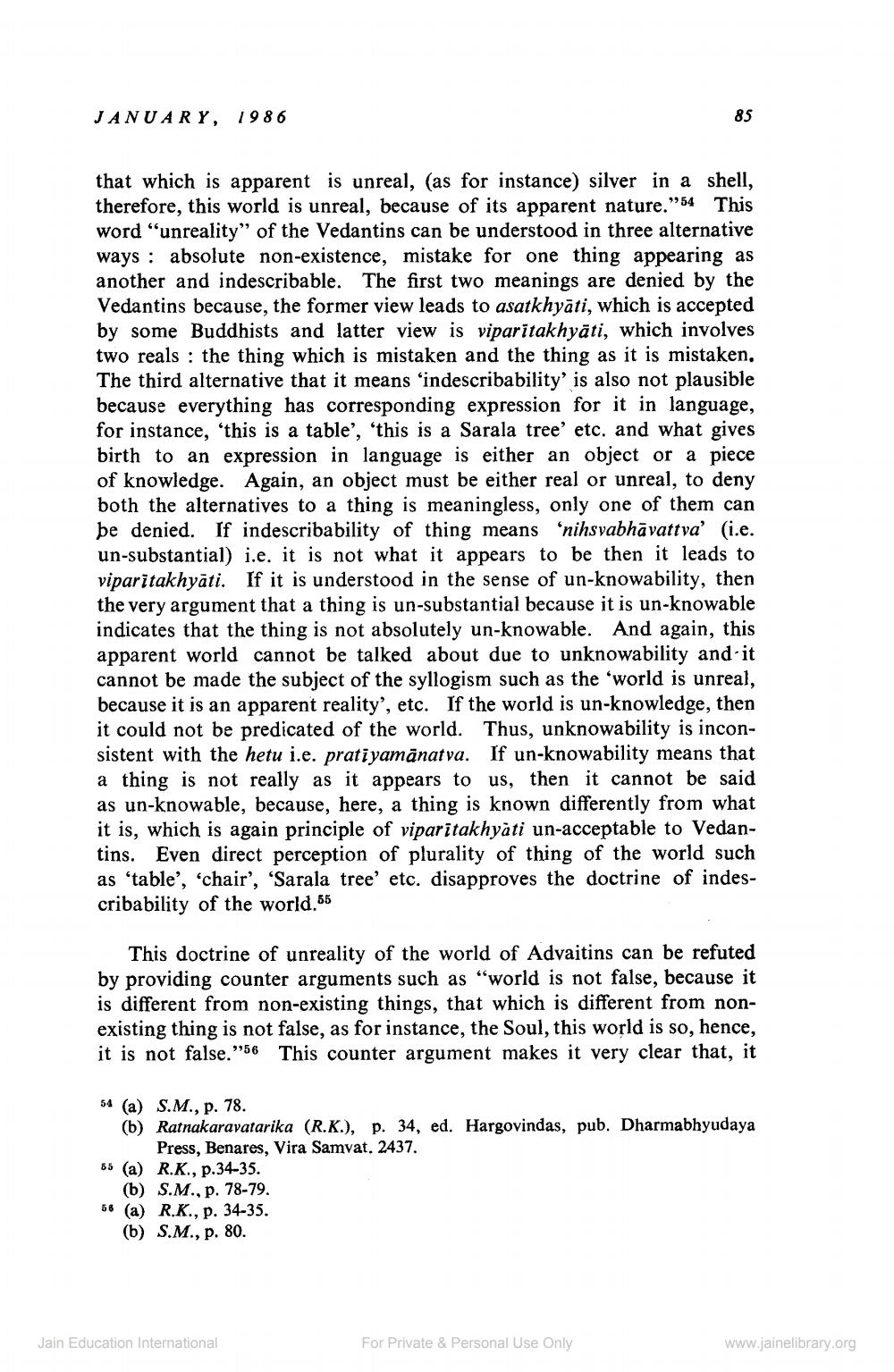________________
JANUARY, 1986
that which is apparent is unreal, (as for instance) silver in a shell, therefore, this world is unreal, because of its apparent nature."54 This word "unreality” of the Vedantins can be understood in three alternative ways : absolute non-existence, mistake for one thing appearing as another and indescribable. The first two meanings are denied by the Vedantins because, the former view leads to asatkhyāti, which is accepted by some Buddhists and latter view is viparitakhyāti, which involves two reals : the thing which is mistaken and the thing as it is mistaken. The third alternative that it means 'indescribability' is also not plausible because everything has corresponding expression for it in language, for instance, 'this is a table', 'this is a Sarala tree' etc. and what gives birth to an expression in language is either an object or a piece of knowledge. Again, an object must be either real or unreal, to deny both the alternatives to a thing is meaningless, only one of them can be denied. If indescribability of thing means ‘nihsvabhāvattva' (i.e. un-substantial) i.e. it is not what it appears to be then it leads to viparitakhyāti. If it is understood in the sense of un-knowability, then the very argument that a thing is un-substantial because it is un-knowable indicates that the thing is not absolutely un-knowable. And again, this apparent world cannot be talked about due to unknowability and it cannot be made the subject of the syllogism such as the world is unreal, because it is an apparent reality', etc. If the world is un-knowledge, then it could not be predicated of the world. Thus, unknowability is inconsistent with the hetu i.e. pratiyamānatva. If un-knowability means that a thing is not really as it appears to us, then it cannot be said as un-knowable, because, here, a thing is known differently from what it is, which is again principle of viparītakhyāti un-acceptable to Vedantins. Even direct perception of plurality of thing of the world such as 'table', 'chair', 'Sarala tree' etc. disapproves the doctrine of indescribability of the world.65
This doctrine of unreality of the world of Advaitins can be refuted by providing counter arguments such as "world is not false, because it is different from non-existing things, that which is different from nonexisting thing is not false, as for instance, the Soul, this world is so, hence, it is not false."'56 This counter argument makes it very clear that, it
54 (a) S.M., p. 78. (b) Ratnakaravatarika (R.K.), p. 34, ed. Hargovindas, pub. Dharmabhyudaya
Press, Benares, Vira Samvat. 2437. 65 (a) R.K., p.34-35.
(b) S.M., p. 78-79. 56 (a) R.K., p. 34-35.
(b) S.M., p. 80.
Jain Education International
For Private & Personal Use Only
www.jainelibrary.org




